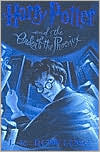Showing My Ars
I haven’t posted anything about my favorite web site Ars Technica in quite some time. Well here goes.
Ars had a nice article about a project to use some knowledge of thermoacoustics to develop a inexpensive, robust, and simple device that can use such a common item as a cook fire to provide the energy needed to provide rudimentary electricity and refrigeration. For those that don’t want to look at the article the goal is to apply acoustic cooling and high efficiency thermodynamics to create essentially a highly engineered tube that when one end is heated the other end cools and electricity is generated. And all of this with a minimum of moving parts. It’s a fantastic use of modern scientific and engineering understanding to create a simple item that can change people’s lives everywhere. It reminds me of an article in the NY Times not to far back about a man who spearheaded creating a solar charging flashlight for poor people in 3rd world countries without electricity. The flashlight left in the sun all day provides about 8 hours of illumination. It allows them to read school lessons, cook, scare away animals and thieves, and any number of other things we take for granted. It also allows them to stop using soot producing lamps and such to light the dwellings. Both of these are good examples of industrialized nations footing a large development cost for a simple item that could help millions of people.
Ars also mentions a report that the Center for Naval Analyses released in which it calls global climate change a national security issue. It’s definitely an interesting article. I like that the report states that the military most often must take action and plan for worst case scenarios when there is usually a limited amount of information. They approach the problem from a tactics and logistics point of view. It promotes that an ounce of prevention is worth a pound of cure. Climate destabilization can cause governments to fail and new enemies and wars to crop up. It would be far cheaper to offer technology to the countries we can help stabilize than it would be to fight in dozens of conflicts. It’s a good smart read.
And finally Ars mentions that Illinois’ citizenry are paying a rather hefty price for defending a law that they should have known was unconstitutional. Most probably the law was seen as a way to garner votes for election time by “Protecting the children.” I hope the tax payers of the state rise up and kick their government’s collective ass. Taking money from the welfare and public health to pay bills on stupid laws. I’m actually surprised SC didn’t end up doing something like that.
Labels: engineering, environment, money, politics, science, technology


























































